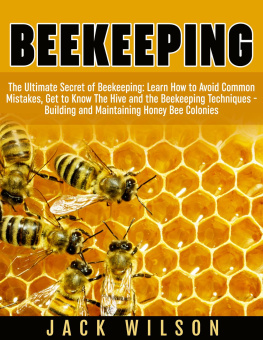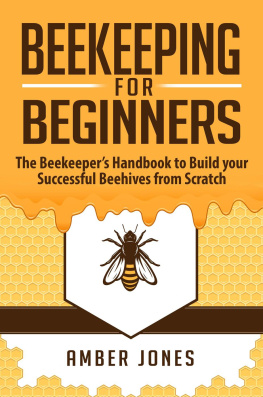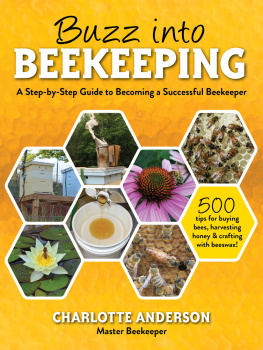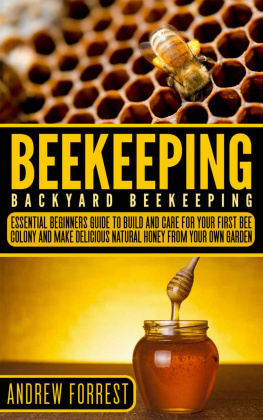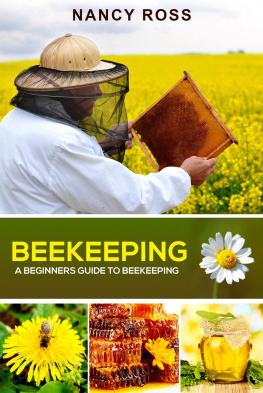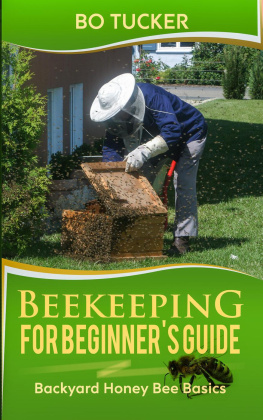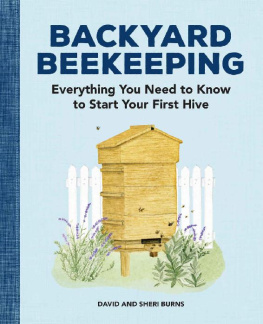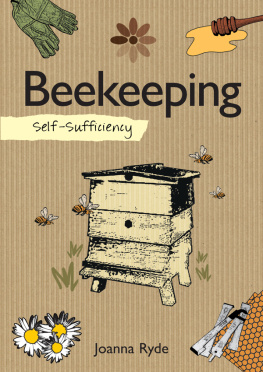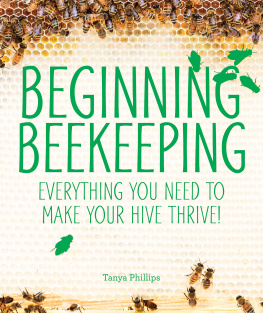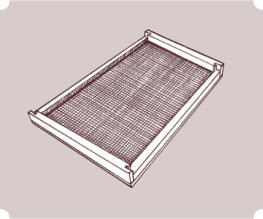Beekeeping
Beekeeping Guide: Avoid Common Mistakes, Get to Know The Hive and the Beekeeping Techniques - Building and Maintaining Honey Bee Colonies
(Beekeeping Guide,Backyard Beekeeper,Building Beehives,Keeping Bees)
Table of Content
Introduction
F irst off, thanks for purchasing my book Beekeeping: The Ultimate Secret of Beekeeping: Learn How to Avoid Common Mistakes, Get to Know The Hive and the Beekeeping Techniques - Building and Maintaining Honey Bee Colonies. By getting this book you've shown that you're serious about starting your own hive and raising bees for honey.
I've been raising bees for the last few years and overall it's been a great experience. I wish I had gotten a book like this when I was starting out because initially I did make some common rookie mistakes. Lucky for you, I'll be going over these common mistakes in a later chapter, along with easy ways to avoid them. This will not only save you time and money in the long run, it will also improve the well-being of your bees and increase honey production.
Bees are an important part of nature. Without bees pollination wouldn't be possible. Plants and flowers wouldn't be able to grow. Bees also make delicious honey which presents an opportunity for people like you and me to raise our own bees, either for personal use or as a beekeeping business.
I have many friends who raise their bees solely to sell at the market and make some quick extra money. I also have some prepper friends who are stockpiling honey for food and for barter if the world ever went to hell. One of the great things about honey is that if it's stored properly it will last almost indefinitely.
Let's get started!
C hapter One: Introduction to Beekeeping
In this chapter, you will learn:
- Why You Should Consider Raising Bees
- The Equipment You Need to Succeed
- Where to Purchase Your Bees
Why You Should Consider Raising Bees
B esides being an enjoyable and relaxing hobby that helps protect our crops and environment, I often get asked why someone should consider starting their own beehive. In this section I'm going to go over a couple of the reasons you might want to consider in order to tell if it's right for you.
Honey
There's nothing quite like fresh honey. Nowadays many honey products aren't made with fresh honey but with corn syrup, additives and synthetics. If you want your own untouched supply of fresh honey then beekeeping might be for you. This is especially true if you're a prepper or live off the grid and want to produce your own consistent source of food.
Honey also presents a business opportunity. By starting your own beekeeping business you can produce and distribute your own honey however you see fit. I have many friends who spend their weekend mornings selling their honey at the local farmers market. There able to make a good income from this and have built up a solid repeat customer base over the years.
Wax
Besides honey, bees also produce wax. There's a ton of things you can do with this wax. Here are just a quick list of just some of the ways you can use beeswax.
Candle Making - Easy to do and burns brighter than ordinary candles.
Dry Hair Remedy - Also can be used to shape mustaches.
Beeswax Crayons
Rust Prevention
Cosmetics
Cheese Waxing Great for storing cheese long term.
Waterproofing Boots and Shoes
Wood Lubricant
Furniture Polish
As you can see having beeswax can allow you to do a variety of things around your home. You can also bottle up the beeswax, and sell that along with your honey if you so desire. Personally, I like to use my excess beeswax to make honey scented candles but everyone is different.
The Equipment You Need to Succeed
I n this section I'm going to discuss the items you'll need in order to get setup. I'll be discussing how to actually create your beehive in the next chapter.
Hive Covers and Bodies
These are what your bees are living in and where they'll be storing honey. These come in three sizes: shallow, medium and deep. I prefer using two deeps as the bees living quarters (this is where they lay all their eggs, and also store the nectar and pollen that will allow them to survive winter), and the shallows for the honey storage. I found the mediums got really heavy when used as the honey storage. However, that's just my own personal preference. You'll also need to have two covers. One is a inner cover made of wood, and the other is an outer cover that is weatherproof.
Frames
This is the different structures where your bees will create their honeycomb, which will then be filled with nectar, eggs and pollen. I use only wooden frames. I have around 9 to 10 frames in each hive.
Bottom Boards
This is what the name implies, a board that will go underneath all of your other components in the hive. You can choose from a screened board, boards with entrance reducers built in, or completely solid boards. Protective Gear
Many people have differing opinions on how much of this gear you'll need when tending to your bees. Nearly everyone wears at least a veil (netted headgear protecting your face). Other than that people's opinions vary widely depending on their own personal level of comfort. You can were a full set of coveralls, or you can simply wear a jacket, leather gloves and rubber boots. Personally, I wear jeans and sneakers with an attached veil. I also use gloves because I've been stung in the past and my fingers swell.
Smoker
These will calm down your bees when agitated, but can be a pain in the ass to operate when you're a newbie. Practice getting your smoker lit and maintaining it. For fuel I like to use pine shavings. It works great. You can find these in pet stores as hamster bedding.
Feeder
During the spring and fall you'll want to do some supplemental feeding. You can use sugar syrup to feed your bees. It's easy to make yourself.
Hive Tool
This is a kind of pry bar that's sharp. It's useful on a lot of different tasks but is used to normally separate and remove frames on your hive body.
Uncapping Knife
This is used to remove wax covering deposited by the bees over their honey in order to stop it from absorbing any water. You'll do this right before extracting the honey. You can use a simple long knife that's flat. Just dip it in hot water before using it or you can use a heated knife you need to plug in. Whatever you're preference.
Containers and Extractors
Beginners don't need to concern themselves with extractors. These are expensive and meant for people with more than one hive. If you have friends with bees who own an extractor feel free to borrow theirs, it will make removing the honey a quicker process. As far as containers you can use whatever size and kind you like. I collect my honey in buckets and store them in nice jars.
Electric Fence
This applies if you live somewhere near bear country. Otherwise bears will come in and you'll need to end up re-buying a lot of your equipment after they get done destroying it.
Where to Purchase Bees
B ees are normally shipped in what is referred to as a package. This package will usually have around 3 lbs of bees along with a mated queen. This will equal roughly 10,000 bees and will arrive in a wooden box that has screened sides and is the size of a shoe box. You can have it shipped directly to you, but it's more common to have it shipped to a more central location for being picked up, like a beekeeping supply type store.
You can also try to find a swarm of bees in the wild, but I definitely don't recommend anyone trying to do that. I'm just throwing it out there since it is an option, just not a good one.
Next page
